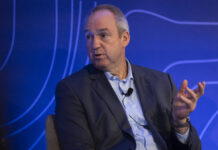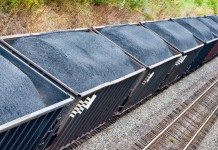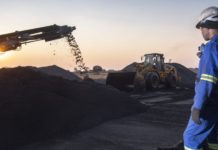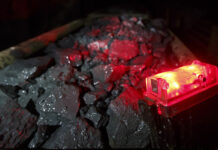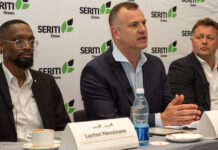
[miningmx.com] — THERE’S a slide that Sasol frequently puts up at its
results presentations, which shows its tax contribution.
And so it was that in its last full financial year, it was South Africa’s largest corporate
taxpayer – with some R25.4bn contributed to the fiscus. Already this year, at the
interim point, it paid R13.5bn in tax. The quietly made implication is the potential
folly of tampering with the profitability of a company that makes such a contribution,
which is exactly a risk of the National Treasury’s proposed carbon tax.
Sasol CEO David Constable is now nine months in the job after taking over from Pat
Davies. He still comes across a tad reticent, and concedes that learning about Sasol’s
business is “like doing homework every night’. But on carbon taxes he’s at his most
fluent, saying, “We need calm heads.’
Introducing a carbon tax will have “unintended consequences’; it may hurt the
manufacturing sector and it will certainly damage SA’s and Sasol’s investibility among
foreign shareholders, he says.
This all makes one wonder whether Sasol will follow in the footsteps of another South
African corporate stalwart, Anglo American, and gradually shift its asset base to
foreign shores. This is to some extent borne out by Constable’s claim that the world
is now in the foothills of the gas era – the “golden age of gas’ as he terms it – which
sees Sasol extending its arm to North America in a big way.
The company paid $1.08bn for a 50% stake in Talisman Energy’s Cypress A shale-gas
prospect in March, adding to its December purchase of Talisman’s Farrell Creek shale
gas in British Columbia for a similar amount. That’s quickfire activity by Constable so
soon in the job. And another acquisition is due in the US, says Constable, but without
providing details.
What’s important about this, apart from positioning in a resource that will occupy a
growing segment of world energy demand, is that it increases Sasol’s volume of
product 30%. The US acquisition will, hopefully, be of a similar size, says Constable.
“But we’re rooted in South Africa,’ he adds.
Unlike Anglo, Sasol has a significant local shareholder base, with 70% of the share
register South African.
Wayne McCurrie, an asset manager for Momentum Asset Management, likes the gas
acquisition strategy and thinks Sasol’s search for resources is opportunistic.
“Anyway, this carbon tax thing is going to be a global phenomenon. There’s no
getting away from it,’ he says.
Sasol’s drive for North American gas also provides some insight into why it’s
important to be exiting Iran, where the South Africans are in joint venture on the Arya
Sasol Polymers project. It just makes bad business sense to be exposed to a country
that is so widely condemned in North America and where sanctions are in place.
“Iran is about 4.7% of our operating profit, and we don’t want to be held back by
sanctions,’ says Constable. “We have to move on.’ He feels Sasol needs to be
diversifying anyway and acknowledges the company is getting “a lot of airtime’ in
Canada and the US for its pursuit of shale-gas.
Shale gas aside, Sasol is currently riding the crest of a wave. The interim dividend
was up 84%, and with the company openly acknowledging there’s more upside to the
oil price, and the rand considerably weaker this financial than in the last, you can’t
help thinking the second half of Sasol’s financial year will mirror the first.
Still, McCurrie feels it can’t get significantly better for Sasol. “You can’t imagine it
increasing earnings another 30% to 40% next year. They are at an earnings peak.’
A sell signal perhaps?
Well, it depends what you think Sasol actually brings to the market. Its gearing is at
a low 7.2%, which CFO Christine Ramon insists is a sensible buffer. Certainly, much
of Sasol’s attraction turns on the unknown directions of the currency.
Sasha Naryshkine of Vestact points out that for every 10c the rand moves to the US
dollar, assuming $109.2 per barrel of oil – last year’s average price – the impact is
R955m on operating profit, equal to 180 days’ worth of current operating profit.
Constable believes Sasol’s positioning as a technology company, while attracting
similar kinds of ratings of oil companies, is its true, long-term value. “We attract
value buyers owing to our huge growth proposition, especially if we can provide an
alternative to the Middle East,’ he says.
Says McCurrie: “You could see a scenario in 20 years from now where gas is the
dominant heating commodity over heating oil. It’s much cheaper and more
environmentally friendly than oil.’
– This article first appeared in Finweek. If you want to subscribe to the digital
format of Finweek visit www.zinio.com.






